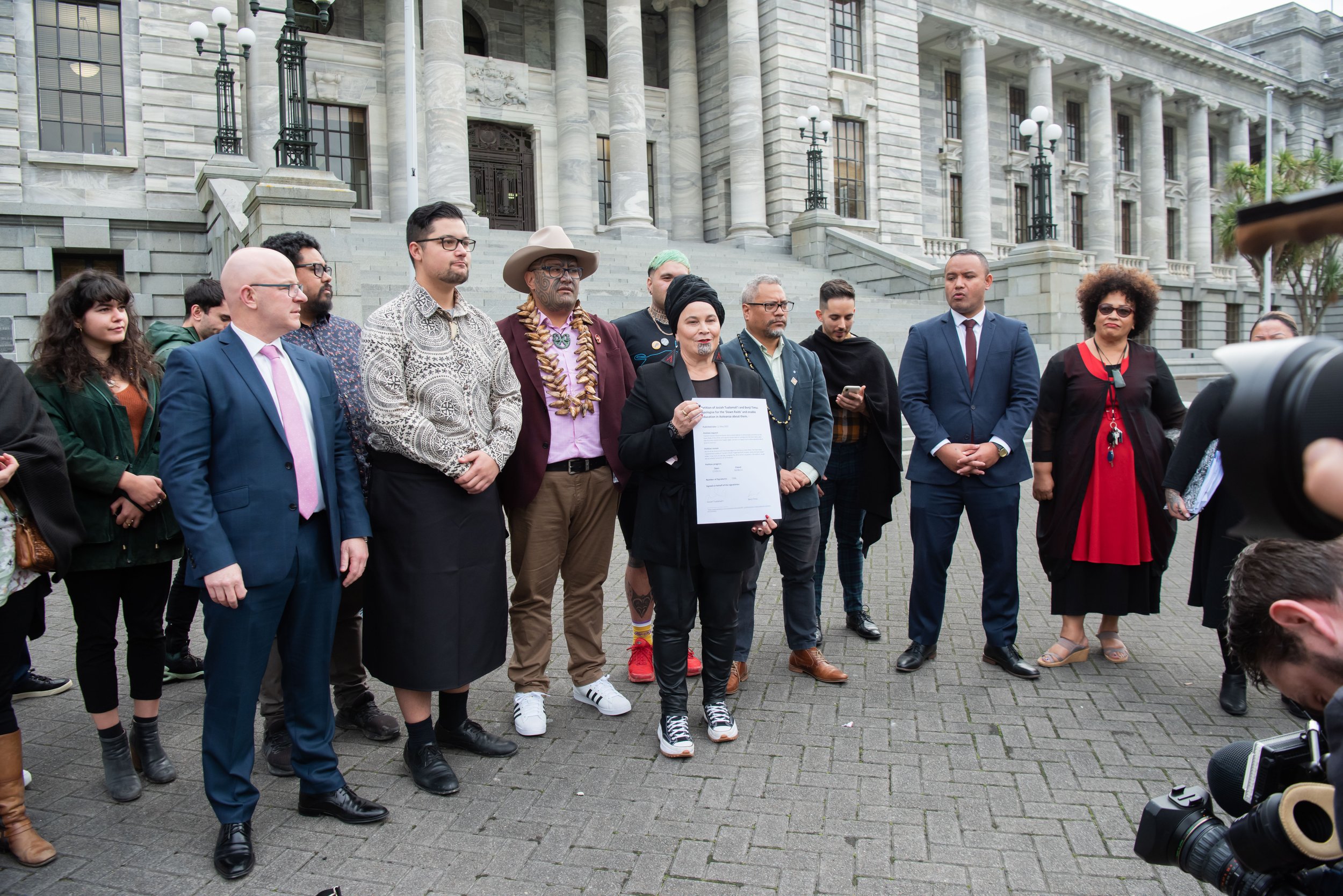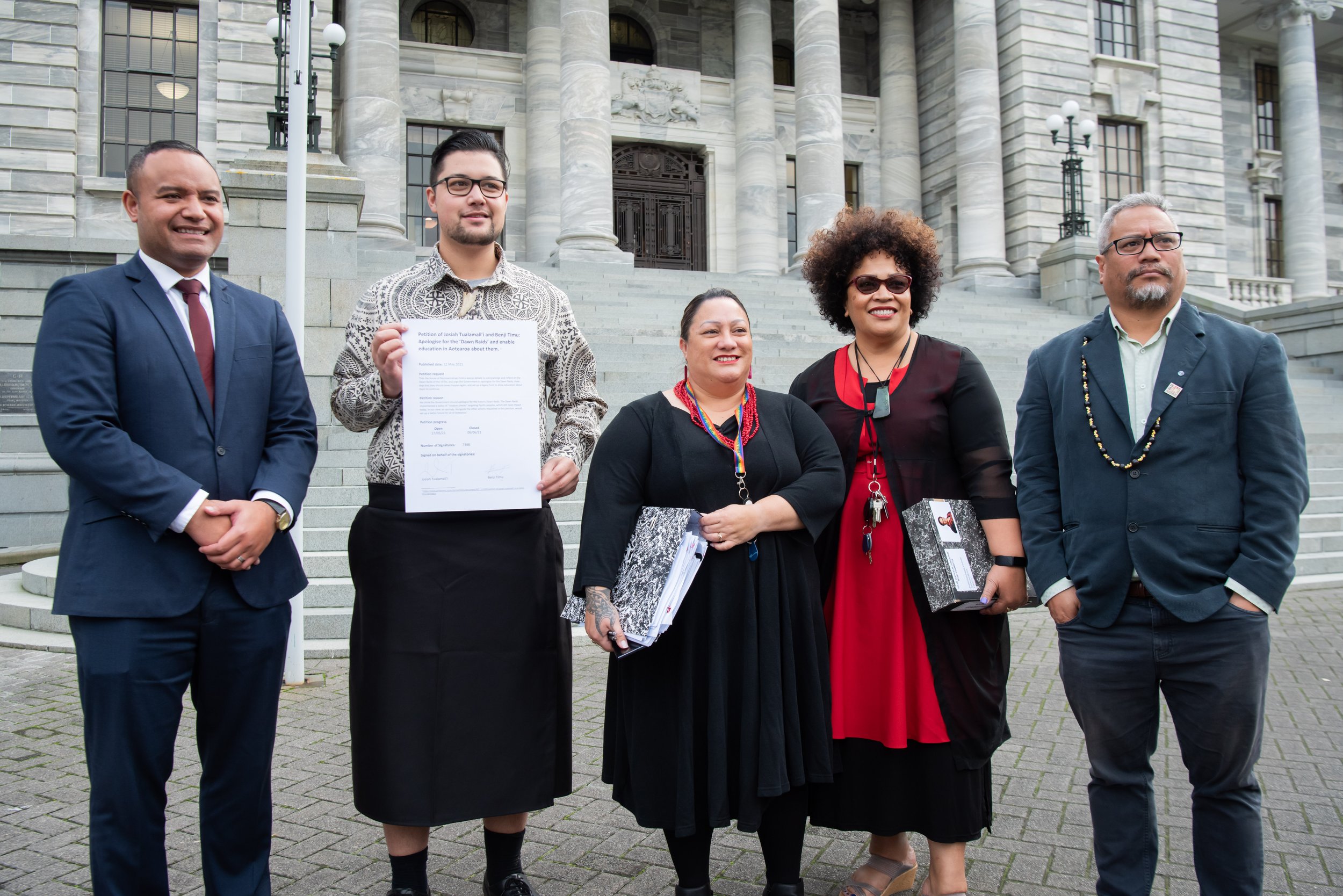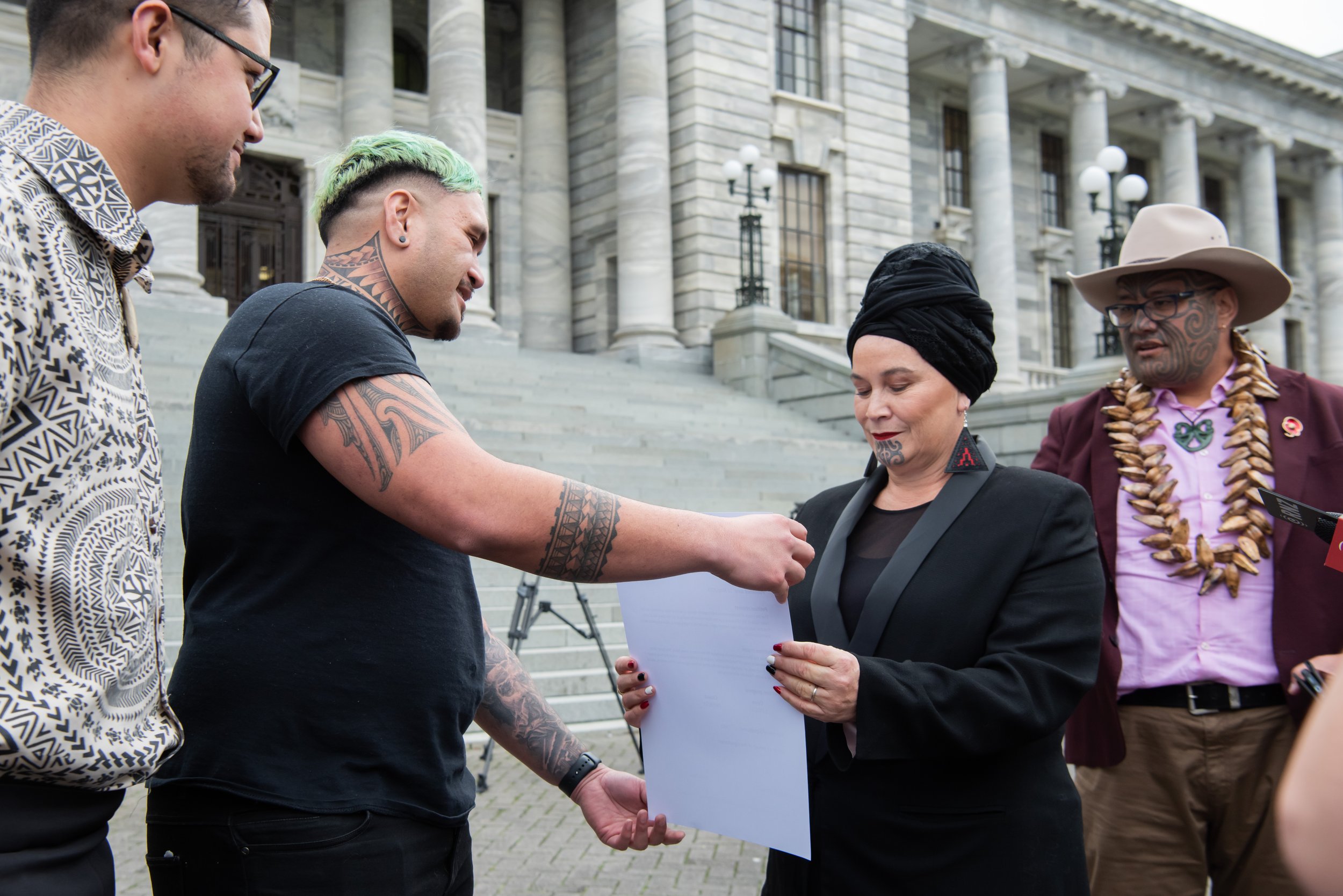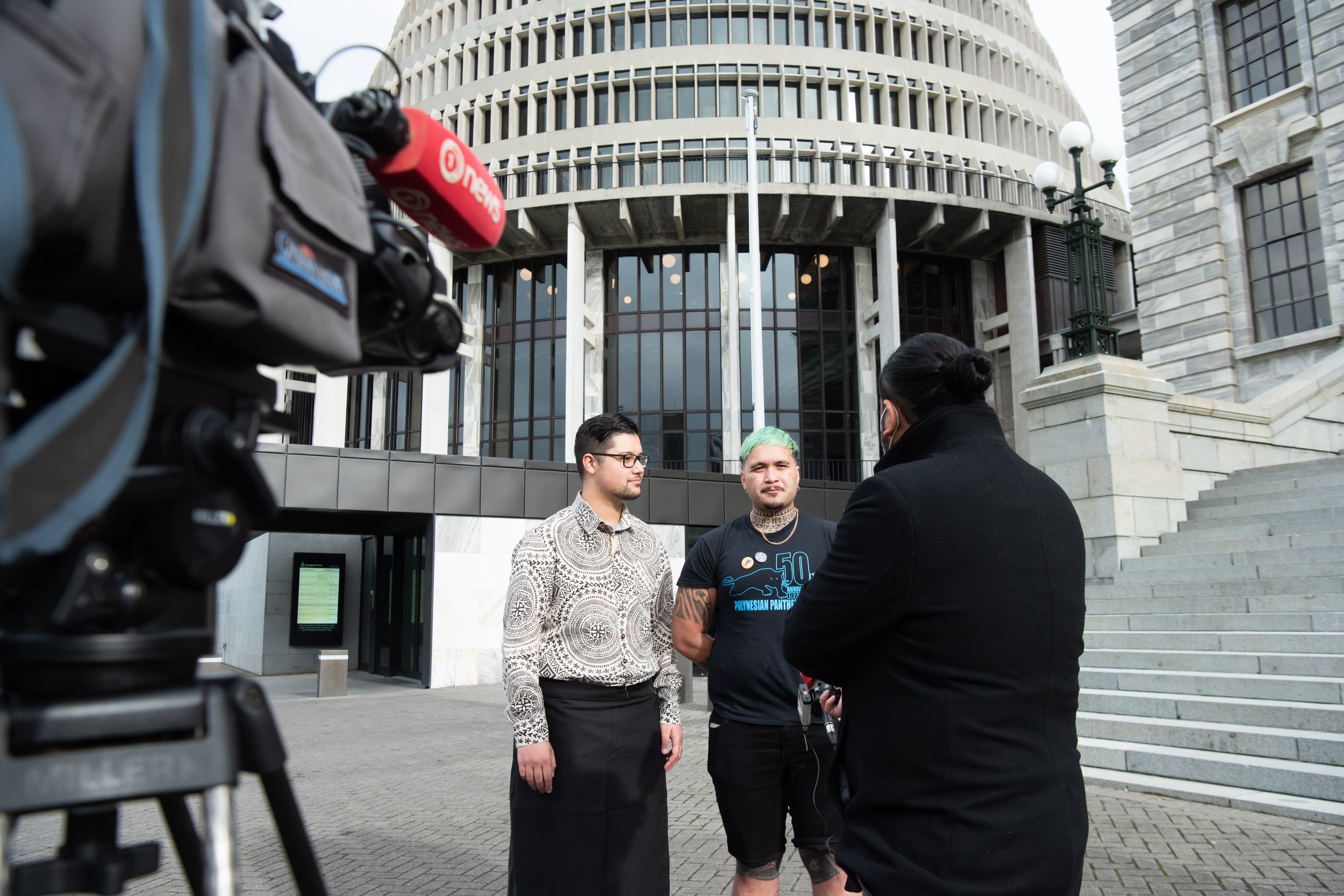The first anniversary of the Dawn Raids Apology: an interview with Josiah Tualamali’i
On 27th August a special event marks the one-year anniversary of the Government formally apologising for the impact on Pacific families during the Dawn Raids in the early ‘70s. A once hidden and shameful secret in some families, the apology has brought conversations of this injustice into the light and healing has begun.
The apology, on 1 August 2021, was a long time coming with many parties, most notably the Polynesian Panther Party, pushing the government to be held into account. A collective of voices rose to be heard. One of these streams of voices came from Josiah Tualamali’i and Benji Timu, two Pacific youth who presented a petition to parliament for a formal apology.
We spoke with Josiah Tualamali’i, former PCF Board Member and Pacific youth advocate about his thoughts one year on.
As a younger person why were Dawn Raids important to you? How did you first hear about it?
When I was younger, I inherently already knew about and understood what happened through community groups and Pacific youth programmes in Christchurch. And later I found out more while I was at university. I learned about why some Pacific elders may not choose to voice and share their stories. I learned why some don’t vote and why others might prefer, and only trust, decisions lead by Pacific peoples. I grew up with this layer of awareness of what went on then and how it impacted how we then lived. As youth we received messages about being careful around the police, about not trusting authority.
You started a petition to push the Government to formally apologise for the impacts of Dawn Raids. Why was it important to you?
At beginning of last year, I saw a tweet online about talks that the Polynesian Party were calling for an apology. It was something I had talked about for a long time with my friends and we agreed more understanding across communities was necessary. It felt wrong that the Polynesian Panthers Matua, who have been doing lots for decades, should continue speaking for themselves, by themselves, without support from others.
I started campaign with my friend Selwyn called #tautokothepanthers – encouraging people to write letters to the Government and Prime Minister. We got to meet the Panthers and Benji Timu who picked up the Kaupapa and decided to get people to share an open letter online – copying it and posting it.
But we decided to do more.
It was important to us that parliament acknowledged their role in this injustice. Parliament, separate from government and as an institution, participated in the words there were being vocalised that helped fuel the raids. Benji and I started a petition to call on Parliament to support the apology - for all parties within it to support it - and crucially to have a special debate. This is because it was important to have a record of the apology. Parliament has a record of every word spoken within it since day dot. Without a debate in Parliament there would be no written record of the apology. We wanted it recorded and a debate would be the vehicle.
The petition was received at the Beehive by Te Pāti Māori co-leader Debbie Ngarewa-Packer. To be received by Mana Whenua, and for them to acknowledge our shared struggle about colonialism in the Pacific was incredible. This is the future that was started by Polynesian Panthers in the ‘70s.
But I also want to stress that this wasn’t planned or intentional. It all started because what had happened was wrong. And doing something about it felt right to us and to the 7,366 people that signed the petition




How did your family and wider community react or support you?
In lots of different ways. My fanau were proud and it was special to speak about this with them. My fanau didn’t directly experience raids but had experienced living in this environment where Pacific peoples were racially profiled. My Aunty and Grandma had come for schooling and had experiences here in New Zealand that made them feel like it was a place where our family could not exist as Pasifika. We’ve been able to uplift stories from other people to know what it was like at that time. The more New Zealand history we can talk about and better understand – the more we can be an inclusive country.
What have been the things that have stood out to you over the past year since the apology?
I think more Pacific people have a better understanding of our relationship with Tangata Whenua. Ngati Whatua welcomed us and hosted us. They have experienced terrible things and yet they made a space for our communities to be heard and for the experience of our elders to be acknowledged. It was a visible demonstration of the special va.
We see different iwi having direct relationship with the Pacific. When Minister Aupito was in Samoa for the treaty of friendship - iwi leaders were part of the delegation.
There have been opportunities for more stories to be shared and we’re going to see more of them. People see Dawn Raids as the beginning and end of a story, but it’s a jumping off point. There is more to come. It is not our complete history.
How does it feel to now see the documentaries and Oscar Kightly’s play, Dawn Raids, being well received?
It’s very special, especially as someone from Christchurch where the play was written by Oscar and Pacific Underground. It was originally written and performed 25 years ago and there was a much more muted reaction - compared to now. Communities are in a different environment now. People understand the blessing and spiritually of diversity of embracing Te Reo and more.
The impact of what happened is still felt by Pacific people. And to what extent does that context influence another areas? What does it mean to access health, or to trust systems and institutions? What Oscar did, and is now in play, is part of that. It may affect us in ways that others may not understand. Not direct causation, but correlation. It’s an important to think about.
What’s next?
I’d like to start talking about another important event. In 2027 it’s the 50th anniversary 2027 of Pasifika Women and I hope that it gets the same recognition. We need to put same effort into supporting that and we’ve got time to get ready for that.
The commemoration service for the Dawn Raids Apology will be held at Orakei Marae on 27 August. For further information click here to read Minister Aupito’s statement regarding the event.

